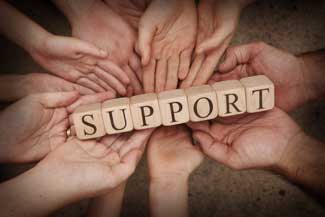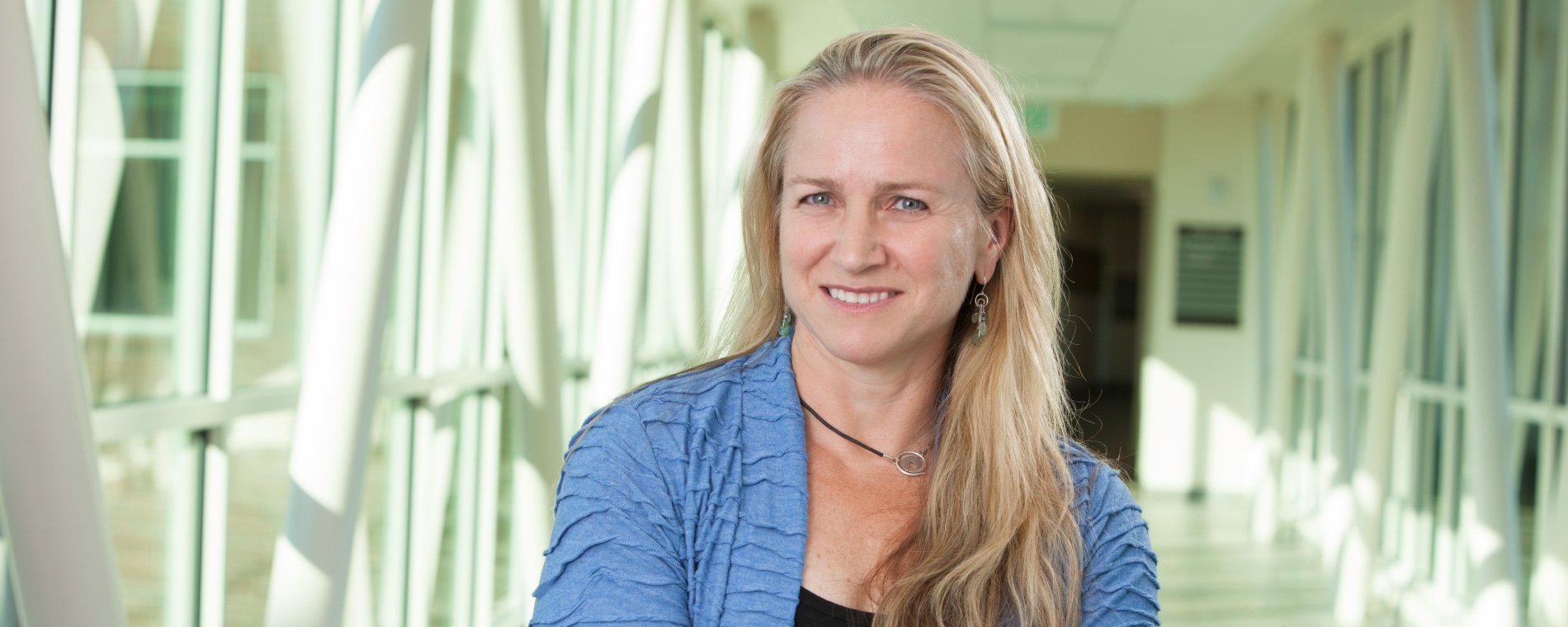When you or a loved one is going through cancer, it’s hard to know where to turn for support. For many reasons, it can be uncomfortable to talk with loved ones about what you’re going through.
Twice a month, Sandra Vanderzanden shares her experience with cancer surrounded by those who understand where she’s coming from, as part of the Living with Cancer Support Group at Willamette Valley Cancer Institute.
Sandra is a caregiver to her friend Jimmy, who has advanced prostate cancer. She and Jimmy have been attending the support group on the second and fourth Tuesdays of the month for over three years.
“I was looking for support, because I didn’t know much about dealing with cancer,” Sandra says. “There are topics discussed at the support group meetings that provide normalcy to what we’re going through.”
WVCI Oncology Care Manager Gretchen Matsuoka leads the group.
“We talk about whatever people need to talk about that day,” Matsuoka says. “Cancer patients often put on a brave face, even when they’re not feeling brave. When they come to group they can be honest and open and share their feelings, and the group helps them process those emotions.”
Benefits of in-person support groups
Unlike online or telephone support groups, in-person groups help patients and caregivers develop personal connections. A typical in-person support group session lasts one to two hours and includes about ten people, but can vary in size.
Topics are usually decided by the group, so that the discussion is relevant and useful.
“It’s a respectful, confidential outlet to share concerns and fears, and it helps participants feel less isolated on their journey,” Matsuoka says. “They feel supported saying things to the group that they may not feel comfortable saying to their friends and family.”
A sense of community
For Sandra and Jimmy, spending time with other people who are dealing with similar struggles and emotions is helpful.
“We learn from each other,” Sandra says. “For example, at one meeting, Jimmy started talking about neuropathy—the tingling in his hands and feet—and there was someone else there who was experiencing it, but didn’t know it was a side-effect of their cancer treatment.”
One patient said in a meeting that she didn’t realize how her emotions affected her caregiver until she heard Sandra share. And by listening to patients talk about how the disease takes an emotional toll on them, Sandra says she now better understands Jimmy and what he’s going through.
And while cancer is a heavy topic, members of the support group find comfort in talking about it.
“There is sadness and we sometimes talk about difficult issues and topics, but we also have a good time. We laugh a lot,” Matsuoka says. “We find what’s uplifting in the situation and help people look for ways to cope that focus on self-care.”
Matsuoka also leads the Multiple Myeloma Support Group once a month, along with WVCI Social Worker Lynda Godell. WVCI also offers an Ovarian/Gynecological Cancer support group once a month that is lead by attendees.
All WVCI support groups are drop-in; anyone can come at any time. There are also several support groups offered throughout the community. Find a list here.
“I suggest to people who are trying a support group for the first time, or thinking about it, to commit to attending three sessions,” Matsuoka says. “After three meetings, you’ll have a better feel if the group is right for you.”
Sandra’s not sure how she would have handled the last three years and Jimmy’s cancer without the support of her group. Being part of it has strengthened their relationship.
“I am much more patient and understanding. I’m not living with this. I’m living with him, living with cancer,” Sandra says. “And I’m grateful for the friendships that have developed in this support group. We really do care about one another.”



